The rights and health of refugees, migrants and stateless must be protected in COVID-19 response
Geneva, 31 March 2020.
In the face of the COVID-19 crisis, we are all vulnerable. The virus has shown that it does not discriminate – but many refugees, those forcibly displaced, the stateless and migrants are at heightened risk.
Three-quarters of the world’s refugees and many migrants are hosted in developing regions where health systems are already overwhelmed and under-capacitated. Many live in overcrowded camps, settlements, makeshift shelters or reception centers, where they lack adequate access to health services, clean water and sanitation.
The situation for refugees and migrants held in formal and informal places of detention, in cramped and unsanitary conditions, is particularly worrying. Considering the lethal consequences a COVID-19 outbreak would have, they should be released without delay. Migrant children and their families and those detained without a sufficient legal basis should be immediately released.
This disease can be controlled only if there is an inclusive approach which protects every individual’s rights to life and health. Migrants and refugees are disproportionately vulnerable to exclusion, stigma and discrimination, particularly when undocumented. To avert a catastrophe, governments must do all they can to protect the rights and the health of everyone. Protecting the rights and the health of all people will in fact help control the spread of the virus.
It is vital that everyone, including all migrants and refugees, are ensured equal access to health services and are effectively included in national responses to COVID-19, including prevention, testing and treatment. Inclusion will help not only to protect the rights of refugees and migrants, but will also serve to protect public health and stem the global spread of COVID-19. While many nations protect and host refugee and migrant populations, they are often not equipped to respond to crises such as COVID-19. To ensure refugees and migrants have adequate access to national health services, States may need additional financial support. This is where the world’s financial institutions can play a leading role in making funds available.
While countries are closing their borders and limiting cross-border movements, there are ways to manage border restrictions in a manner which respects international human rights and refugee protection standards, including the principle of non-refoulement, through quarantine and health checks.
More than ever, as COVID-19 poses a global threat to our collective humanity, our primary focus should be on the preservation of life, regardless of status. This crisis demands a coherent, effective international approach that leaves no-one behind. At this crucial moment we all need to rally around a common objective, fighting this deadly virus. Many refugees, displaced, stateless people and migrants have skills and resources that can also be part of the solution.
We cannot allow fear or intolerance to undermine rights or compromise the effectiveness of responses to the global pandemic. We are all in this together. We can only defeat this virus when each and every one of us is protected.
ENDS
For more information on this topic, please contact:
OHCHR: Rupert Colville, +41 22 917 97 67, [email protected]
IOM: Leonard Doyle, +41 79 285 71 23, [email protected]
UNHCR: Cecile Pouilly, + 41 79 108 26 25, [email protected]
WHO: Tarik Jašarević, +41 793 676 214, [email protected]
Page 4 of 20
-
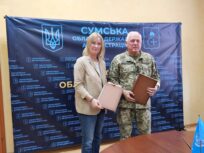
UNHCR and Sumy Regional State Administration pave the road towards even stronger cooperation to support people impacted by Russia’s full-scale invasion
23 Aug 2023Sumy, 23 August 2023 – UNHCR, the UN Refugee Agency, and the Sumy Regional State Administration today signed a Memorandum of Understanding that identifies key areas for joint support to people in Sumska oblast who are directly impacted by the full-scale invasion of the Russian Federation. To address critical needs […]
-
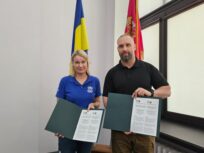
UNHCR and Kharkiv Regional State Administration strengthen ongoing cooperation to support people impacted by Russia’s full-scale invasion rebuild their homes and lives
22 Aug 2023Kharkiv, 22 August 2023 – UNHCR, the UN Refugee Agency, and the Kharkiv Regional State Administration today signed a Memorandum of Understanding to solidify and further strengthen their well-established cooperation to support people from Kharkiv region and their communities, which have been severely impacted by the war. During the signing […]
-
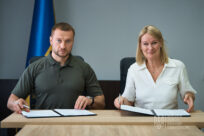
UNHCR and Donetsk Regional State Administration solidify strong cooperation to address the needs of displaced and war-affected people
21 Aug 2023Dnipro, 21 August 2023 – UNHCR, the UN Refugee Agency, and the Donetsk Regional State Administration today signed a Memorandum of Understanding to solidify and expand their well-established cooperation to support people from Donetsk region and their communities impacted by the war. During the signing ceremony, both parties agreed to […]
-
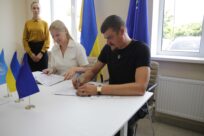
UNHCR and Luhansk Regional State Administration solidify strong cooperation to support people and communities impacted by Russia’s full-scale invasion
21 Aug 2023Dnipro, 21 August 2023 – UNHCR, the UN Refugee Agency, and the Luhansk Regional State Administration today signed a Memorandum of Understanding to solidify and further strengthen their ongoing cooperation to support war-affected people from the Luhansk region. As the full-scale invasion continues, Luhanska oblast, in the frontline of the […]
-
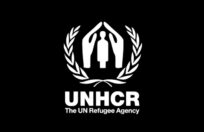
Statement of UNHCR Representative
19 Aug 2023I am appalled and heartbroken to learn that one of our humanitarian colleagues, who had been working as a protection staff for our Ukrainian NGO partner, Right to Protection, was killed in the Russian missile attack on Chernihiv city centre this morning. He leaves behind a wife and children. Our […]
-

A New Start: An 18-month long journey from hurt to healing
15 Aug 2023After Russia’s full-scale invasion began, 37-year-old Lavra* and her 13-year-old son, Anton, had to flee their home in a small industrial town in eastern Ukraine. However, they were not only escaping from the war. “This has been an absolute horror,” says Lavra, as she recounts her life during the initial […]
-

Helping make Olga’s home livable again
3 Aug 2023Olga remembers the moment that war came to her neighbourhood. “We were at home, and suddenly there was a deafening sound followed by an explosive wave,” she recalls. “Immediately the windows in our kitchen shattered.” “Nobody understood what was happening – only constant explosions and everything was burning. It was […]
-
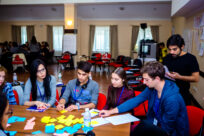
UNHCR in Ukraine announces a call for application for the DAFI Scholarship programme for the 2023-2024 academic year
28 Jul 2023Deadline for applications: 21 August 2023 You are invited to apply for the DAFI scholarship Programme funded by the German Government and administered by UNHCR with the goal of helping refugee students to access education. The scholarship will cover all tuition fees, including living costs and educational materials, during full-time […]
-
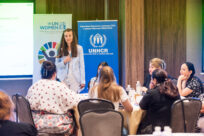
Voices of Roma in war-torn Ukraine
21 Jul 2023“In the first weeks of war, we worked non-stop to support Roma people who were fleeing frontline areas in Khersonska and Mykolaivska oblasts under shelling and arriving to Odesa. We could not find a place in the collective sites for them even when spaces were available,” Vira Drangoi recalls. The […]
-

Fresh homes and fresh starts for families in Chernihiv – welcome to UNHCR’s “Core homes”
20 Jul 2023Losing one’s home and community is devastating. But it is a reality for some 1.4 million households across Ukraine since Russia’s full-scale invasion in February 2022. One-third of these homes are damaged beyond repair. In order to provide these families and communities with a roof over their heads while their […]
